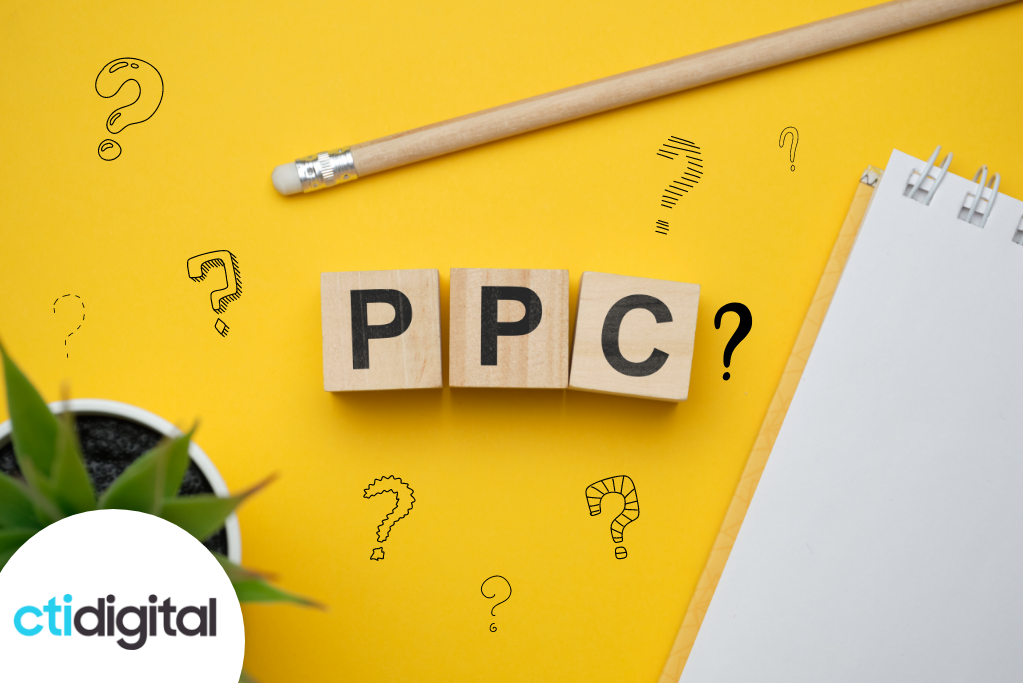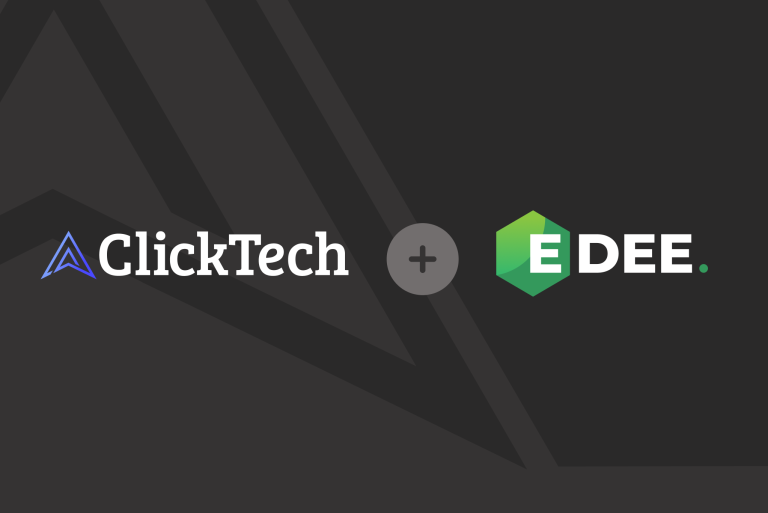PPC is a digital marketing strategy that businesses use to gain website traffic and drive conversions from search engines.
Perhaps you’re looking for ways to generate your first sales as a new business. Or maybe you’re considering ways to grow your brand’s presence online. Either way, PPC can be an effective way to market your business and reach new customers. It can, however, be a little confusing if you’re just getting started with the channel.
In this guide, we’ll help you understand exactly what PPC is and how it works, so you can use it to drive success for your business.
What is PPC?
PPC (or for pay-per-click) is a form of online advertising, where the advertiser pays a fee each time one of their ads is clicked. Essentially, you’re paying for targeted visits to your website (or landing page or app).
When your PPC ad is working as it should, the fee is insignificant because the click is worth more than what you pay for it. For example, if you pay £1 for a click, but the click results in a £300 sale, then you’ve made a hefty profit.
PPC ads come in different shapes and sizes (literally), and can be made up of text, images, videos, or a combination. They can appear on search engines, websites, social media platforms, and more. Learn more about the different PPC ad platforms.
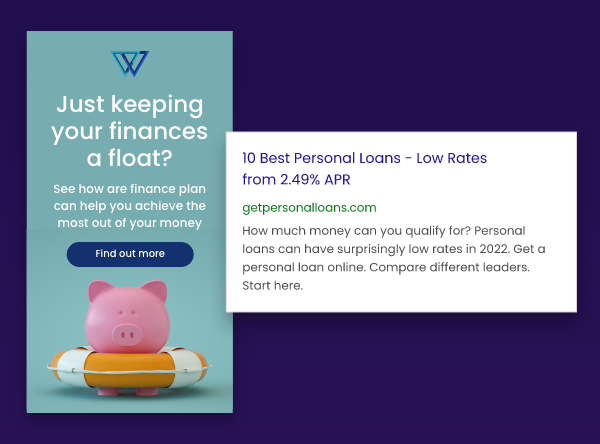
How does PPC advertising work?
PPC covers a number of different ad platforms. Within each of these platforms are different ad formats, such as:
- Search Ads
- Shopping Ads
- Display Ads
- Video Ads
- Gmail Ads
Most commonly, you will find that businesses start their PPC marketing on Google Ads. That’s because Google Ads give you exposure to the largest audience of prospective customers and clients. Plus, Google Ads gives you multiple ways to set up and run campaigns depending on your goals.
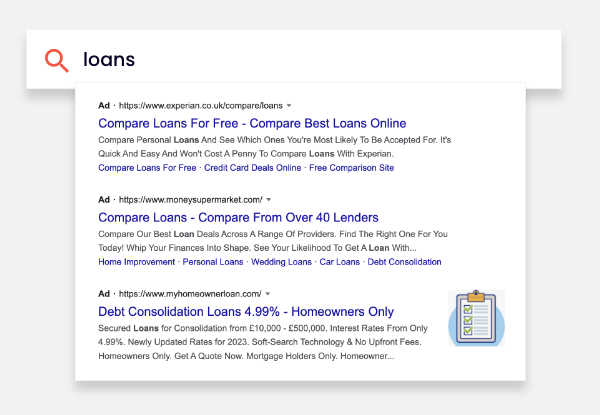
But regardless of the platform and ad format you use, the main principles of PPC remain the same:
- Sign up to an advertising account with your chosen platform.
- Create ads (and select the right targeting by adding keywords or audiences, etc.).
- Set the maximum cost you are willing to pay for each click.
- Your ad goes into an auction with other advertisers who are bidding on the same keywords.
- The auction determines the order in which the ads are shown.
- You pay when someone clicks on your ad.
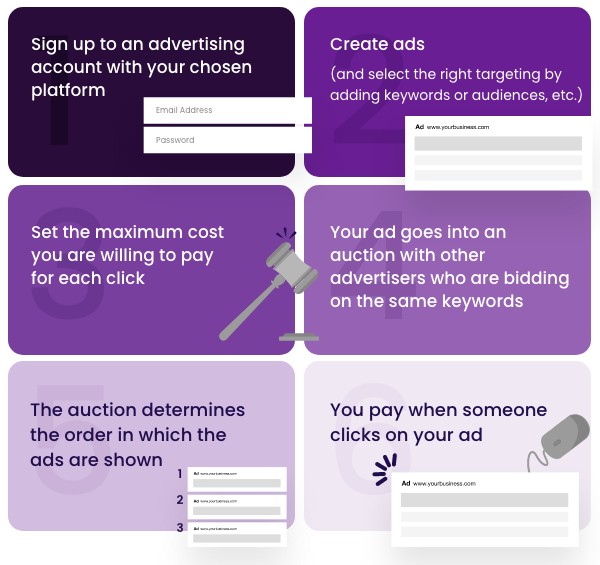
An auction is often the most confusing part if you’re just getting started with PPC, so let’s take a look at how it works.
How do PPC auctions work?
When a user performs a search, an ad auction takes place that is used to determine factors including:
- An ad account’s eligibility to enter the auction.
- The order in which eligible ads will appear in the ad space on the results pages.
- How much a click will cost each of the advertisers whose ads are showing.
The first influencer on the auction here is the maximum CPC (cost-per-click) that an advertiser sets in their ad account, either for a specific keyword or ad group. This is the most that they are willing to pay for each click. But it doesn’t necessarily mean that this is how much they will actually pay, just the maximum.
The other influencer is the Quality Score (QS), a metric that consists of a number of different factors such as the expected CTR (click-through rate) of an ad, the relevancy of an ad to the query being searched for, and the experience of the landing page that the ad will send traffic to.
The position of an ad on the results page is determined by the ad rank, which can be defined in simple terms as: Ad Rank = Quality Score x Max CPC.
Google’s actual formula is a little more complex, but to gain a general understanding, this is a brilliant way to look at it.
What determines how much an advertiser pays for a click?
Ad Rank plays a big part in how much you will pay per click, but isn’t the only contributing factor to CPC. We can understand the cost that an advertiser pays to appear in their position as: Cost Per Click = Ad Rank of the advertiser below / Quality Score + $0.01.
Whether you’ve just started your business or have been around for decades, PPC might be the boost you need to get an edge on your competition – or at least ahead of them in the SERPs.
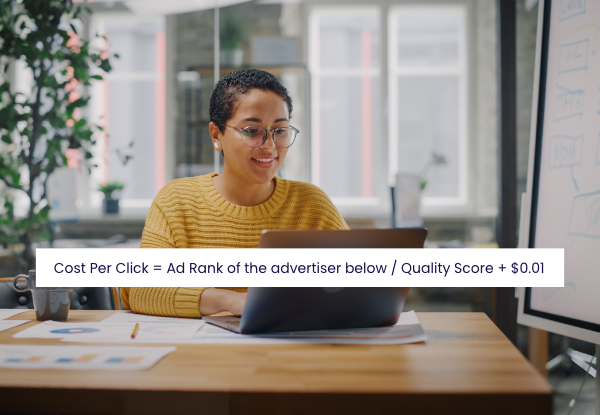
How to manage your PPC campaigns
Once you’ve created new PPC campaigns, you’ll need to manage them regularly to make sure they continue to be effective. In fact, regular account activity is one of the best predictors of account success. You should continuously analyse the performance of your account and making the following adjustments to optimise your campaigns:
- Continuously add PPC keywords: expand the reach of your PPC campaigns by adding keywords that are relevant to your business.
- Add negative keywords: add non-converting terms as negative keywords to improve campaign relevancy and reduce wasted spend.
- Review costly PPC keywords: review expensive, under-performing keywords and shut them off if necessary.
- Redefine landing pages: modify the content and CTAs on your landing pages to align with individual search queries, and ultimately, boost conversion rates. Don’t send all your traffic to the same page.
- Split ad groups: improve click-through rate (CTR) and Quality Score by splitting up your ad groups into smaller, more relevant ad groups. Doing so will help you create more targeted ad text and landing pages.
For help growing your business, discover Adzooma’s platform. Or discover CTI’s award-winning PPC services.
